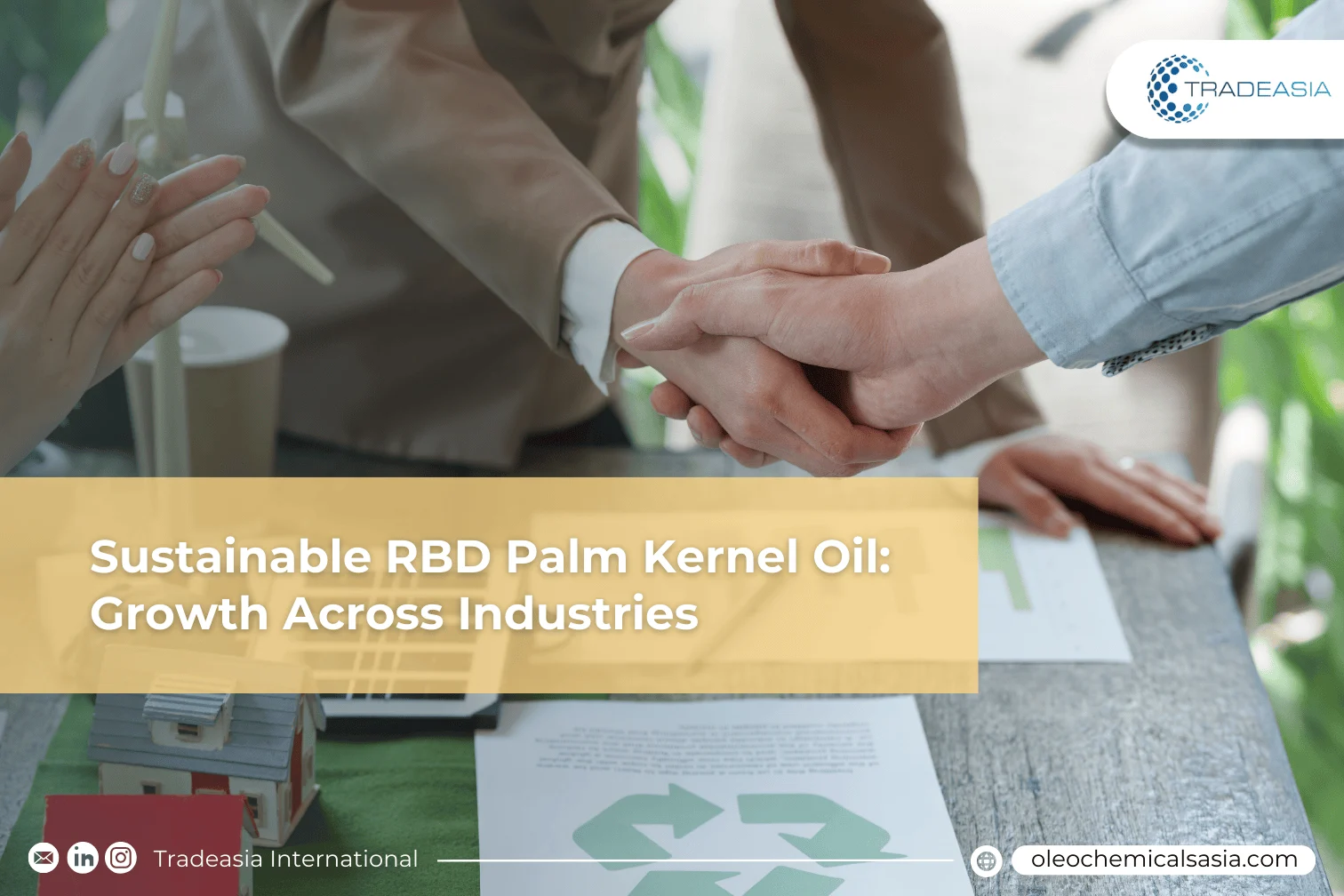Bridging Market Demand with Sustainable Palm Solutions
In recent years, Refined, Bleached, and Deodorized (RBD) Palm Kernel Oil has emerged as a cornerstone in the global vegetable oil market, offering versatility, cost efficiency, and a pathway toward sustainability. With the market projected to reach approximately USD 15.8 billion by 2033, expanding at a CAGR of 4.5% between 2025 and 2033, this growth is largely driven by rising consumption in the food and cosmetics sectors, alongside growing consumer preference for plant-based and naturally sourced ingredients. Companies like Tradeasia International, offering reliable palm and oleochemical solutions, are helping businesses seamlessly integrate sustainably sourced oils into their supply chains, bridging market demand with responsible sourcing practices.
"Sustainability is not just a trend—it’s a strategic advantage," remarks an industry insider, reflecting the growing emphasis on eco-conscious production methods. RBD Palm Kernel Oil producers are increasingly adopting certifications like RSPO, zero-deforestation pledges, and fully traceable supply chains. Investments in water recycling, carbon capture, and other eco-friendly technologies are significantly reducing environmental impact, positioning the oil as the preferred choice for companies seeking to meet sustainability targets while maintaining product quality.
Expanding Applications: From Food to Cosmetics
The influence of RBD Palm Kernel Oil extends across industries. In the food sector, its high oxidative stability and extended shelf life make it ideal for baked goods, confectionery, and margarine production. Consumers’ rising demand for clean-label, natural ingredients encourages manufacturers to integrate sustainably produced oils, reinforcing the upward market trajectory. Meanwhile, the cosmetics and personal care industries leverage the oil’s emollient properties in lotions, soaps, and other beauty products, combining product efficacy with environmental responsibility.
The Asia-Pacific region dominates the market, fueled by leading palm-producing countries such as Indonesia and Malaysia, where industrial growth and rising disposable incomes continue to boost consumption. North America and Europe are also significant markets, driven by environmentally conscious consumer bases and stringent sourcing regulations, particularly in Europe where sustainable procurement policies are rapidly advancing.
Looking ahead, the RBD Palm Kernel Oil market is set for continued growth, supported by innovations in sustainable production and processing technologies. Market estimates suggest the sector could surpass USD 7.7 billion by 2033, with a CAGR of 5.26% from 2025, solidifying its role as a sustainable, high-demand commodity. This intersection of economic potential and environmental stewardship ensures RBD Palm Kernel Oil will remain integral to the evolving landscape of global food and cosmetics industries.
Sources:
-
Oleochemicals Asia (for market insights and sustainability trends) - https://www.oleochemicalsasia.com/market-insights/palm-stearin-market-oleochemicals-sustainability-2025
-
Strategic Revenue Insights (for refined palm kernel oil market size and CAGR) - https://www.strategicrevenueinsights.com/industry/refined-palm-kernel-oil-market
-
WK Information (for palm kernel oil market outlook and projected growth) - https://www.wkinformation.com/market-reports/palm-kernel-oil-market/

Leave a Comment